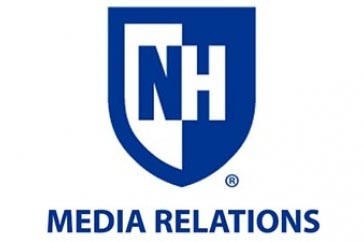Media Availability: Maple Syrup Experts Comment on Warmer Winter Impacts and Possible Tree Sap Alternatives

DURHAM, N.H. — As maple syrup season seems to arrive and end earlier and earlier each year, producers are learning to adapt to variable weather patterns and seasonal shifts. Experts at the University of New Hampshire are available to talk about the impact climate change and milder winters are having on sap harvesting and what that might mean for the future of the industry. They can lend insight into the impact on sugaring—the need to tap trees earlier—and the possibility of producing syrup from non-maple tree species. If it is a viable option to supplement traditional maple syrup production and what ecological and economic advantages it may offer to diversify the syrup industry.
Steven Roberge, professor of natural resources and UNH Extension state specialist of forest resources, has served as a forestry specialist with Extension for 17 years. Roberge supports and manages Extension’s forest stewardship program in cooperation with the New Hampshire Division of Forests and Lands and the Natural Resources Conservation Service. He has an extensive background in maple syrup and products and has served in leadership roles with the Granite State Division of the Society of American Foresters, the N.H. Maple Producers Association and the N.H. Maple Museum.
Roberge can be reached at steven.roberge@unh.edu; 603-674-7095
David Moore, a doctoral candidate at UNH’s College of Life Sciences and Agriculture, studies tree physiology and syrup production in species such as maples, birches, walnuts, beeches, sycamores, basswoods and hophornbeams. David is developing best management practices for harvesting sap and producing syrup from different trees. He monitors sap flow, stem pressure, wood temperature, sap yield and sap sugar concentration during winter dormancy, and he’s also looking at how trees heal from tap hole wounds and the chemical compositions of saps and syrups. He was formerly the owner and operator of The Crooked Chimney, a sugaring operation in Lee, N.H. He’s currently earning his doctorate in UNH’s Natural Resources & Earth Systems Science program.
Moore can be reached at davidblakneymoore@gmail.com; 603-620-0127
Latest News
-
April 15, 2025
-
Research Finds Rural Americans Carry Heavy Burden Accessing Social Security Benefits and InformationMarch 27, 2025
-
March 25, 2025
-
March 17, 2025
-
March 12, 2025













































